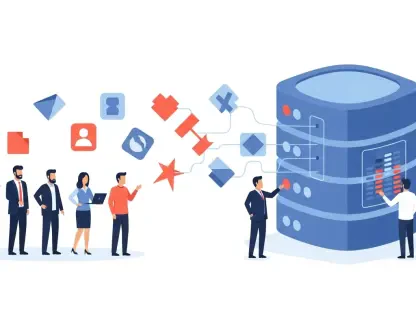In an era where data-driven decision-making is of paramount importance, WrenAI emerges as a transformative tool by revolutionizing the field of business intelligence through its innovative Generative Business Intelligence (GenBI) capabilities. WrenAI, an open-source agent developed by Canner, offers seamless interaction with structured data, bridging the technical divide to democratize access to data insights. By eliminating the intricacies of SQL programming, WrenAI empowers both technical and non-technical teams to engage with data more intuitively. This breakthrough enables users from diverse backgrounds to pose natural language queries, receive precise SQL responses, and visualize data without advanced technical skills. WrenAI’s role extends beyond simplifying data queries to include facilitating a broader understanding and utilization of complex datasets, making data insights more accessible and actionable across various linguistic and professional landscapes.
Key Capabilities and Flexibility
The versatility of WrenAI is evident through its ability to translate natural language queries into SQL commands, providing invaluable benefits to a wide array of users. Those who previously found technical query formulation challenging can now access data insights without needing a background in programming. Besides generating SQL queries, WrenAI supports multiple outputs, including charts, summary reports, dashboards, and spreadsheets, ensuring that users can present and operationalize data instantly. This multi-modal output capability not only enhances data visualization but also ensures that insights are easily digestible and operational. An integral facet of WrenAI’s effectiveness is its GenBI Insights feature, which delivers AI-generated summaries and contextually aware visualizations. By doing so, WrenAI promotes quick, informed business decisions, synthesizing complex data into intuitive analyses, which are invaluable in fast-paced business environments.
WrenAI’s integration with significant large language models (LLMs) further bolsters its adaptability. Supporting models such as OpenAI’s GPT series, Azure OpenAI, Google Gemini, and Vertex AI, along with options for deploying local or custom models, WrenAI embodies a unified API that standardizes multi-provider LLM utilization. This abstraction guarantees diverse capabilities while maintaining output consistency and quality, making WrenAI suitable for various applications and industries. The platform’s adaptability to different LLMs caters to users’ specific analytic preferences, broadening its appeal and functionality across multiple sectors. This strategic integration underscores WrenAI’s commitment to providing robust solutions scalable across different business contexts, thereby enhancing its relevance and effectiveness in evolving data analytic landscapes.
Architectural Foundation
WrenAI showcases a modular, extensible architecture designed for robust deployment and integration regarding data analytics processes. The system comprises several integral components operating in harmony: a user interface focused on natural language queries and data visualization, an orchestration layer for parsing inputs and executing queries, and semantic indexing embedding metadata and database schema crucial for providing the LLM context. The architecture’s query engine executes generated SQL queries across supported databases and data warehouses, ensuring precision in query outcomes. Moreover, the architecture supports advanced visualization, rendering tables, charts, and dashboards while exporting results as needed. The plugin and extensibility features ensure that the system can be tailored to domain-specific requirements, highlighting WrenAI’s versatility and ability to deeply integrate into existing systems, thereby optimizing workflow processes.
Moreover, the detailed operations within the Semantic Engine are pivotal. WrenAI effectively minimizes hallucination risks typically associated with AI models by employing schema embeddings as dense vector representations. This technique captures schema and business context efficiently, ensuring relevance-based retrieval informs SQL accuracy significantly. Few-shot prompting and metadata injection further enrich LLM prompts with schema samples, business logic, and joins, enhancing reasoning capabilities. The approach to context compression maintains essential details within token constraints, thereby ensuring cohesive and comprehensive responses. These processes collectively reinforce the system’s reliability and consistency, emphasizing WrenAI’s robust framework in delivering dependable data analytics that faithfully reflects underlying business intelligence.
Integration and Market Impact
The system’s integration capabilities are broad, supporting an extensive array of databases and data warehouses, including BigQuery, PostgreSQL, MySQL, and Microsoft SQL Server, among others. Flexible deployment modes offered by WrenAI, such as self-hosted, cloud-based, or managed services, further expand its adaptability to different operational environments. The integration is amplified by its API and embedding functions, facilitating seamless incorporation into other applications or platforms. By transforming natural language into actionable queries, WrenAI enables sectors ranging from marketing and sales to product operations and executive analysis to leverage advanced data analytics, irrespective of technical expertise. This paradigm shift opens opportunities for a broader audience to engage in meaningful data interpretation and strategic decision-making processes.
Current trends spotlight WrenAI’s deployment as reflective of an industry-wide shift towards advanced yet accessible data analytics tools. With business intelligence shedding technical barriers, platforms like WrenAI make complex data insights available even to those lacking specialized coding skills. This movement towards democratized, AI-powered analytics aligns with broader industry priorities emphasizing adaptability, integration ease, and comprehensive insight generation as keys to maintaining competitive advantage. WrenAI, therefore, stands as a testament to future business intelligence where data fluency becomes increasingly independent of technical literacy, fostering enhanced productivity and strategic decision-making capabilities across all levels of an organization.
A Future of Demystified Data Analytics
WrenAI excels in its ability to convert natural language queries into SQL commands, benefiting users who struggle with technical query formulation by allowing them to gather insights without programming expertise. Beyond SQL generation, it offers diverse outputs like charts, summary reports, dashboards, and spreadsheets, ensuring data can be quickly visualized and applied. This versatility not only improves the understanding of data but also makes insights straightforward to digest and use. A key component of WrenAI is its GenBI Insights feature, which provides AI-generated summaries and visually informative context, aiding swift and informed business decisions by turning complex data into easy-to-understand analyses crucial for dynamic business settings.
Moreover, WrenAI’s compatibility with major large language models (LLMs), such as OpenAI’s GPT series, Azure OpenAI, Google Gemini, and Vertex AI, alongside options for local or tailor-made models, illustrates a versatile API that harmonizes multi-provider LLM use. This approach maintains consistent output quality and makes WrenAI adaptable for myriad applications, enhancing its relevance and efficiency in the changing landscape of data analytics.









